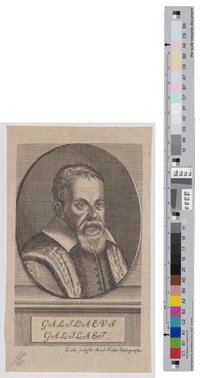
"Galileo Galilei (/ˌɡælɪˈleɪoʊ/ GAL-il-AY-oh, also US: /-ˈliːoʊ/ -⁠EE-oh, Italian: [ɡaliˈlɛːo ɡaliˈlɛi]; 15 February 1564 – 8 January 1642) was an Italian astronomer, physicist and engineer, sometimes described as a polymath, from Pisa. Galileo has been called the "father of observational astronomy", the "father of modern physics", the "father of the scientific method", and the "father of modern science".[10]
Galileo studied speed and velocity, gravity and free fall, the principle of relativity, inertia, projectile motion and also worked in applied science and technology, describing the properties of pendulums and "hydrostatic balances", inventing the thermoscope and various military compasses, and using the telescope for scientific observations of celestial objects. His contributions to observational astronomy include the telescopic confirmation of the phases of Venus, the observation of the four largest satellites of Jupiter, the observation of Saturn´s rings, and the analysis of sunspots." - (en.wikipedia.org 05.11.2019)




![[Galileo Galilei]](/data/nds/resources/images/202009/200w_000001-5f58ae0daabe3.jpg)
